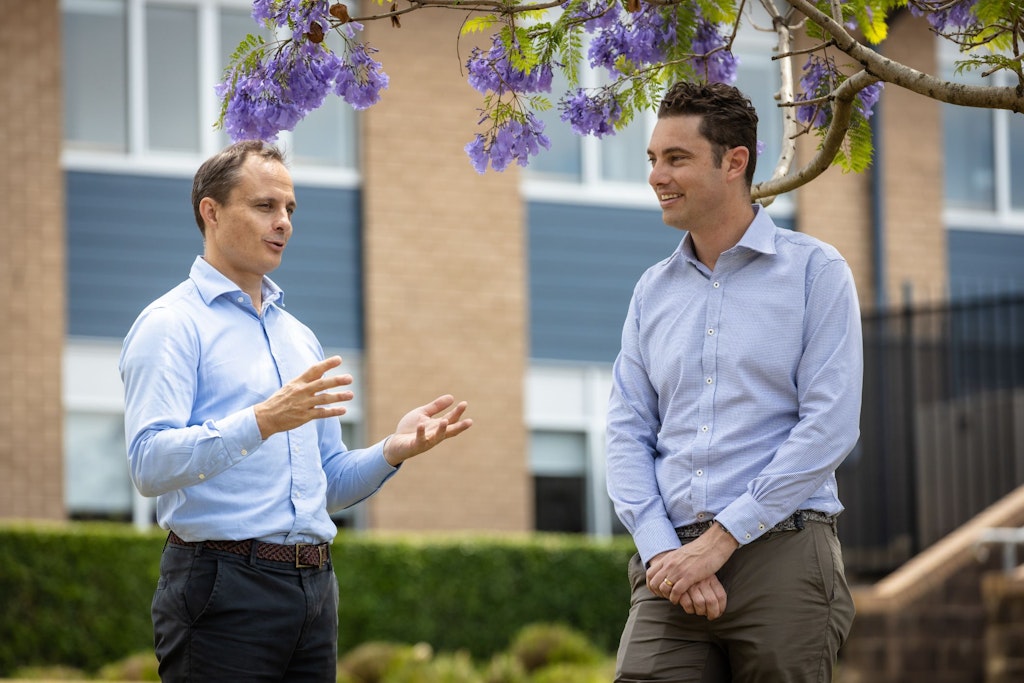Renewable energy deal a major step towards net zero for BaptistCare
Published on 21 November 2023 (Last updated on 24 November 2023)

Environmental sustainability is at the forefront of BaptistCare’s (NSW, ACT and WA) mind as the aged care and community services provider has announced a ten-year deal to purchase renewable energy and reduce its carbon footprint.
The deal is part of BaptistCare’s long-term plan to reach net zero emissions by 2050, or earlier, as several other crucial initiatives will help create sustainable operations and services across the board.
Key points
- Referred to as a Power Purchase Agreement (PPA), BaptistCare’s decade-long agreement with Flow Power, an electricity, technology and engineering company, will see them purchase around 15,000 megawatt hours yearly at a predetermined price.
- The electricity is sourced from solar and wind farms in NSW, such as Sapphire Wind Farm, Shoalhaven Community Solar Farm and Bomen Solar Farm.
- The PPA is active from 2025 and it will provide enough energy to power around 1400 homes, reducing BaptistCare’s NSW and ACT carbon footprint by 70%.
BaptistCare’s decision to enter a PPA is industry-leading, and it encompasses a core component of its transition to net zero alongside its installation of more rooftop solar panels and trialling electric and hybrid vehicles in its fleet.
Thomas Griffiths, Head of Strategy & Investments for Baptist Care NSW, ACT and WA said the amount of carbon saved would be equivalent to taking 25000 cars off the road.
“BaptistCare is committed to reaching net zero in our Scope 1 and 2 emissions by 2050 or before, and this PPA with Flow Power forms a key part of our credible roadmap to get there,” he explained.
“We will save around 11,000 tonnes of carbon per year, which is like taking 25,000 petrol-powered cars off the road over the 10 years of the agreement.”
“It’s also a way to ensure BaptistCare is a part of the just transition. We care for some of the most vulnerable people in our communities, and this PPA, paired with other initiatives, is one part of our commitment to caring for people, planet and the community. We are proud to help lead the aged care and community sector towards a just transition to renewable energy.”
The PPA ensures BaptistCare has a consistent link to renewable energy sources and large-scale generation certificates (LGCs) which is essentially a type of currency used for buying and selling renewable energy.
What are Scope 1, 2 and 3 emissions?
- In referencing Scope 1 and 2 emissions, Mr Griffiths refers to the three types of emissions listed under the GHG Protocol corporate standard
- Scope 1 emissions are direct emissions from company-owned and controlled resources, including facilities/buildings and vehicles
- Scope 2 emissions are indirect emissions from the source of purchased electricity; this is also referred to as upstream activities
- Scope 3 has two parts: indirect downstream activities such as investments, leased assets or the use of sold products and; indirect upstream activities such as purchased goods, waste from operations and business travel
As well as partnering with Flow Power to reduce its Scope 1 and 2 emissions, BaptistCare will be installing solar panels at its residential aged care homes while also developing stronger recycling practices to reduce Scope 3 emissions.
Charles Moore, CEO of BaptistCare NSW, ACT and WA, recognised the collaborative nature of sustainability as he encouraged other aged care service providers to assess how they can reduce their carbon footprint.
“The scale of these challenges requires innovation and collaboration. We are grateful for the support from the NSW Office of Energy and Climate Change and the Sustainability Advantage Program to develop our net zero pathway and identify opportunities to reduce our emissions,” Mr Moore said.
“In addition to sustainability benefits, the project also delivers cost certainty and strong business outcomes, and we encourage others in the sector to actively consider how they can also play a role in accelerating this renewables transition.”
As part of its Caring for the Planet initiative, BaptistCare said it will build internal sustainability knowledge and skills amongst staff, engage with suppliers to enhance responsible procurement practices and prioritise sustainable building guidelines and designs. These are just a few of the ways an aged care organisation can address its environmental impact and influence.
BaptistCare has already adopted the NABERS (National Australian Built Environment Rating System) national sustainability rating across retirement living homes. A NABERS rating reveals how sustainable its buildings are when benchmarked against others, highlighting areas of improvement if applicable.